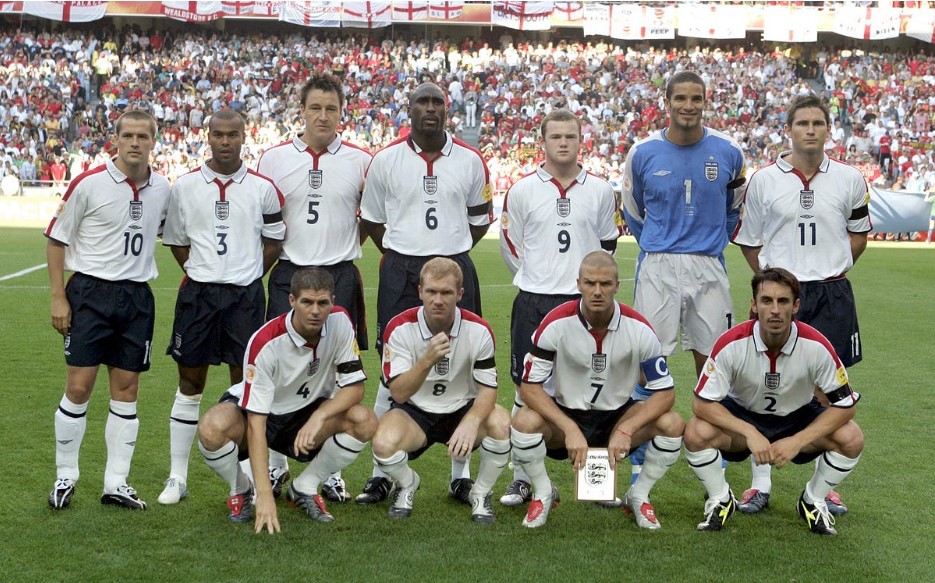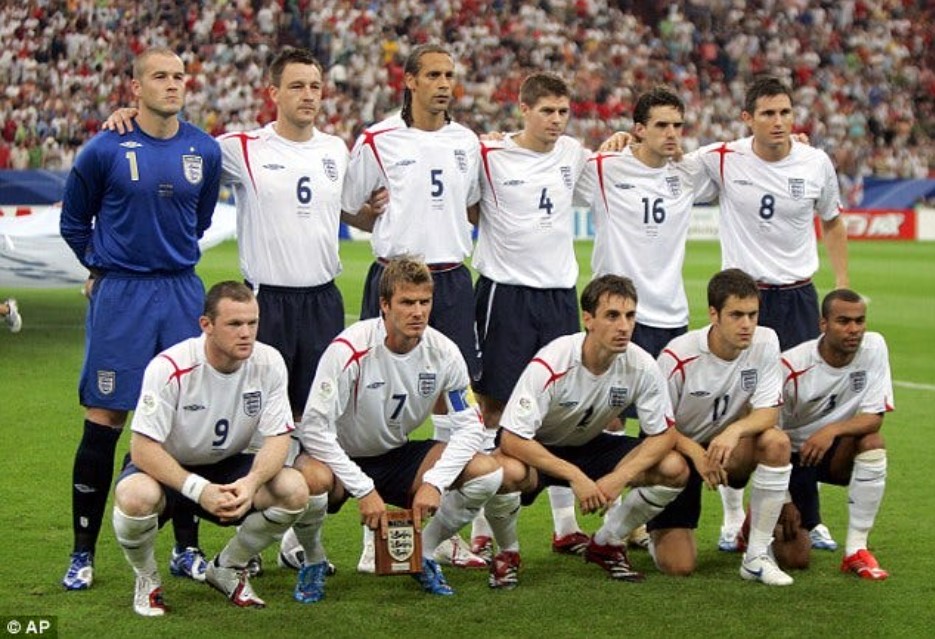Throughout football history, certain teams have emerged that transcend time, not merely winning trophies but capturing the imagination of fans around the world. These “Golden Generations” are squads bursting with exceptional talent and chemistry, often arising from the alignment of extraordinary players within a specific era. They don’t always win the biggest prizes, but their influence on the sport endures. The beauty of football lies in these fleeting moments of brilliance where all the right pieces fall into place. As we revisit these incredible teams, the magic of their performances still resonates today, and their matches continue to be sought after, replayed, and streamed on Xoilac TV, which has become a hub for passionate fans to relive these unforgettable eras.
Let’s dive into some of the most iconic Golden Generations in football history, exploring what made them special, their key moments, and their lasting legacies.
Contents
- 1 1. Brazil 1970: The Ultimate Expression of Beautiful Football
- 2 2. Netherlands 1974: The Masters of Total Football
- 3 3. France 1998-2000: The Zidane Era
- 4 4. Spain 2008-2012: Tiki-Taka Domination
- 5 5. Portugal 2000-2004: The Almost Generation
- 6 6. Belgium 2014-2022: The Unfulfilled Potential?
- 7 7. Argentina 1986-1990: The Maradona Era
- 8 Conclusion
1. Brazil 1970: The Ultimate Expression of Beautiful Football
No discussion about Golden Generations is complete without mentioning Brazil’s 1970 squad. Often regarded as the greatest football team ever, this team was the epitome of joga bonito—the beautiful game. Packed with legendary players like Pelé, Tostão, Jairzinho, and Carlos Alberto, the 1970 Brazilian side won the World Cup in Mexico with a style of football that had never been seen before.
Their dazzling 4-1 victory over Italy in the final is still considered one of the most magnificent displays in World Cup history. Brazil’s intricate passing, movement, and ability to score spectacular goals, all while maintaining a relaxed flair, was awe-inspiring. Pelé, already a two-time World Cup winner, further cemented his status as one of the greatest of all time. This team’s success, beauty, and dominance have become the benchmark for what a Golden Generation can achieve.
2. Netherlands 1974: The Masters of Total Football
While Brazil 1970 was all about style and individual brilliance, the Netherlands’ 1974 team introduced a new way of playing: Total Football. Under the guidance of coach Rinus Michels and led by the incomparable Johan Cruyff, the Dutch side captivated the world with their fluid, interchangeable system where any player could perform any role.
This innovative approach took the Netherlands to the World Cup final, where they were narrowly defeated by West Germany. Despite not lifting the trophy, the 1974 Dutch team is remembered for revolutionizing the game. Their ability to control and dominate matches with a complex tactical setup left a profound impact on modern football. Many of today’s great teams, including Barcelona under Pep Guardiola, owe their tactical roots to the Netherlands’ Golden Generation of the ’70s.
3. France 1998-2000: The Zidane Era
The late 1990s and early 2000s were dominated by a French team that blended power, technical ability, and tactical discipline. Led by Zinedine Zidane, France won their first-ever World Cup in 1998, defeating Brazil 3-0 in the final on home soil. Two years later, they added the European Championship to their list of honors, becoming only the second team ever to hold both trophies simultaneously.
This generation boasted not only Zidane, but also other world-class talents such as Thierry Henry, Patrick Vieira, Lilian Thuram, and Didier Deschamps. Their rock-solid defense, dynamic midfield, and clinical finishing made them one of the most complete teams in modern history. Zidane’s majestic performances, particularly in the 1998 final and throughout Euro 2000, symbolized this team’s excellence. France’s success during this period also served as an inspiration for future generations of French footballers.
4. Spain 2008-2012: Tiki-Taka Domination
Between 2008 and 2012, Spain achieved something no other national team had ever done—winning three major international tournaments in a row: Euro 2008, the 2010 World Cup, and Euro 2012. This remarkable run was made possible by a Golden Generation of players who perfected the art of possession football, known as tiki-taka.

Under coaches Luis Aragonés and Vicente del Bosque, Spain dominated matches by controlling the ball, frustrating opponents, and creating scoring opportunities through intricate passing and movement. Players like Xavi, Andrés Iniesta, David Villa, Iker Casillas, and Sergio Ramos formed the backbone of this team. Their victory over the Netherlands in the 2010 World Cup final, sealed by Iniesta’s extra-time goal, remains one of the most iconic moments in football history.
Spain’s success was not just about winning titles; it was about changing how football was played. Their style influenced club teams like FC Barcelona and the global football landscape for years to come. Even now, when teams adopt a possession-based style, the shadow of Spain’s Golden Generation looms large.
5. Portugal 2000-2004: The Almost Generation
Sometimes, Golden Generations don’t achieve the glory they seem destined for. Portugal’s crop of players from the early 2000s, led by Luís Figo, Rui Costa, and later joined by a young Cristiano Ronaldo, was one such example. Despite their immense talent and stylish play, Portugal couldn’t quite capture a major international trophy during this period.
They came agonizingly close in Euro 2004, which they hosted. After a fantastic tournament that included victories over Spain and the Netherlands, Portugal reached the final, only to be stunned by underdogs Greece. That defeat marked the end of an era for players like Figo and Costa, although Ronaldo would go on to lead Portugal to Euro 2016 glory more than a decade later. Nevertheless, the talent and excitement generated by this Golden Generation earned them a place in football lore.
6. Belgium 2014-2022: The Unfulfilled Potential?
Belgium’s Golden Generation, featuring talents like Eden Hazard, Kevin De Bruyne, Romelu Lukaku, and Thibaut Courtois, has been hailed as one of the most talented squads in football history. Since emerging on the international scene in the early 2010s, Belgium has consistently been ranked among the world’s best teams, yet they have failed to secure a major trophy.
Their best chance came in the 2018 World Cup, where they reached the semifinals before losing to eventual champions France. Belgium would go on to finish third, their best-ever result in the tournament. Despite their continued presence at the top of world football, questions remain as to whether this Golden Generation will fulfill its potential before key players age out of their prime.
7. Argentina 1986-1990: The Maradona Era
No list of Golden Generations would be complete without mentioning Diego Maradona and the Argentina teams of the late 1980s. Maradona’s individual brilliance was enough to elevate Argentina to World Cup glory in 1986. His performances, particularly the “Hand of God” and the “Goal of the Century” against England, remain legendary.
While Argentina fell short in the 1990 World Cup final, losing to West Germany, Maradona’s presence and influence on the game during this period were unparalleled. His ability to single-handedly win matches made Argentina one of the most feared teams in world football.
Conclusion
Golden Generations in football are often remembered not only for their victories but for the lasting impact they leave on the game. These teams set new standards for how football could be played, from Brazil’s artistry in 1970 to Spain’s dominance through tiki-taka. While some, like Belgium and Portugal, never quite reached their full potential in terms of silverware, they still provided fans with moments of brilliance that will be remembered for generations.
Today, with modern technology and streaming platform: trực tiếp bóng đá Xoilac 7, fans can relive the magic of these Golden Generations whenever they wish. Whether through replays of classic matches or in-depth documentaries, the stories of these legendary teams continue to inspire new generations of football lovers across the globe.
